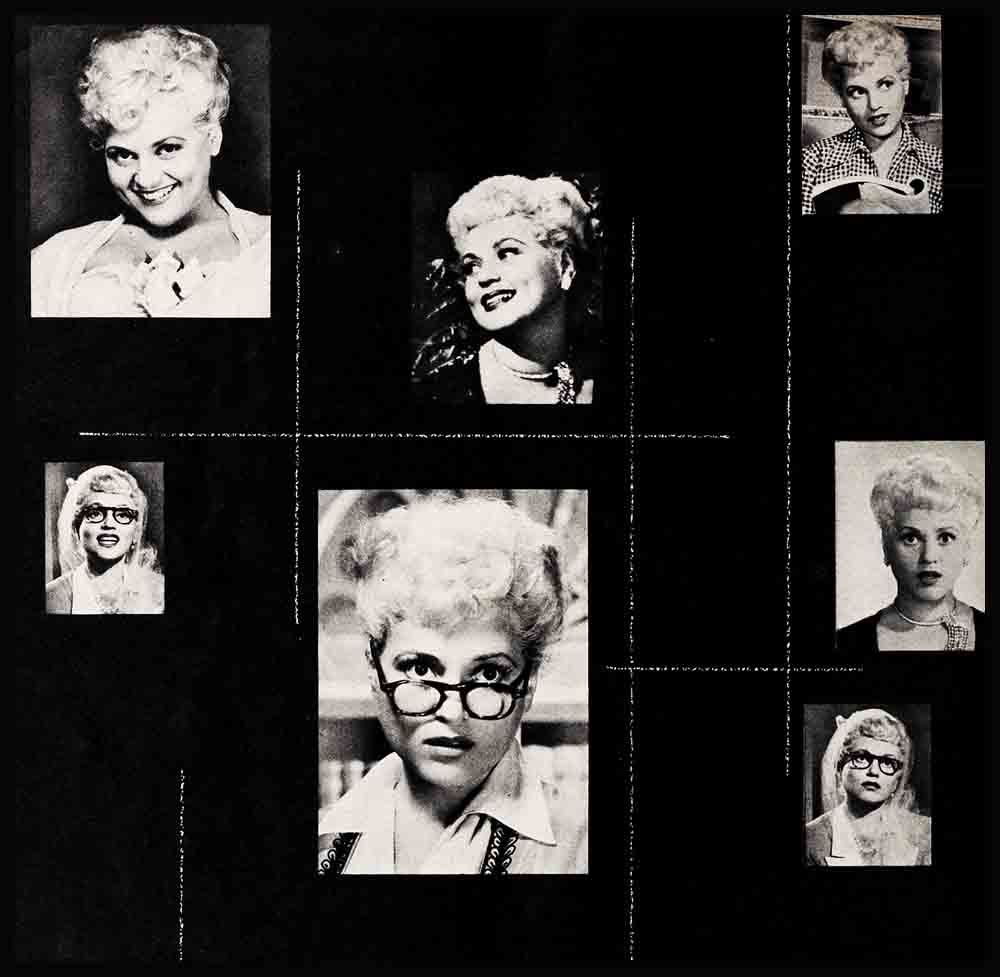
Happy Holliday
Sensations occur about twice a minute in Hollywood without, as a rule, elevating anybody’s blood pressure. But you would have thought a bomb had gone off in the vicinity of Hollywood and Vine the night Columbia previewed “Born Yesterday,” with Judy
Holliday as Billie Dawn. Overnight Judy was the great new star. Fans in the bleachers outside the Pantages Theater scanned the faces of departing celebrities, and, disappointed, began to chant “We want Judy.” They hadn’t even seen the picture, but they heard the news. Reporters and photographers pestered the studio for appointments; Judy’s agents were badgered for her phone number—hostesses wanted her for their parties, advertisers wanted her endorsement every producer in town wanted her for a part that absolutely nobody else could do.
Everybody wanted Judy. But Judy wasn’t there. A sleuth could have found her by calling a certain Greenwich Village apartment, in Manhattan. For Judy in private life is Mrs. David Oppenheim, and Judy had gone home as fast as an airliner could take her, the minute the last set-up in the picture was on film.
“Born Yesterday” wasn’t Judy’s first fling at pictures. Nor even the second. She was so good as the suspected murderess in “Adam’s Rib,” a year ago that some Holliday enthusiasts thought Judy should win two Academy awards—best star performance in “Born Yesterday,” best supporting actress in “Adam’s Rib.”
But what most people don’t know is that Judy’s trip to Hollywood to appear in “Adam’s Rib” was in the nature of a come-back. She had been “discovered” by Hollywood, as promptly undiscovered, and had been all washed up in films at the ripe old age of twenty-three.
Twentieth Century-Fox had her under contract for six months in 1945, at about one-hundredth of the salary they would have to pay her now—if they could get her.
This studio’s talent scouts had spotted Judy at the Trocadero where she was appearing with Betty Comden and Adolph Green in an off-beat night-club act they called “The Revuers.” What they saw then was a pretty blonde—who was also a deadly mimic, an inspired comedienne, a song satirist with a style all her own. They told Judy she ought to be in pictures and made her an offer.
Judy hesitated because accepting would mean breaking up “The Revuers.”
“Don’t be crazy,” urged Betty and Adolph. “It’s your big chance.”
So Judy reported to the studio. The producers, seeing her for the first time, out of her familiar setting, saw her all alone and on her own—and they pegged her as just another pretty little blonde with a tendency to get too fat. They had hired her and they might as well use her, so they east her, dubiously, in mousy, ingenue roles in “Something for the Boys” and “Winged Victory.”
The Judy Holliday of the Revuers got lost somewhere, and the Judy Holliday who emerged shouldn’t have.
So Judy was fired, and she fled home to mother, to pals who knew she was no drab mouse. She would never set foot in Hollywood again.
It wasn’t the first low spot in her life—or the last—but Hollywood had been able to do something to Judy nobody had ever succeeded in doing before. It had shattered the release spring for her tremendous vitality and talent, her magnificent self-confidence.
That kind of terrible isolation, which most of us feel now and then, Judy Holliday had never experienced before the shattering six months in Hollywood. She had always before known that she was loved and wanted.
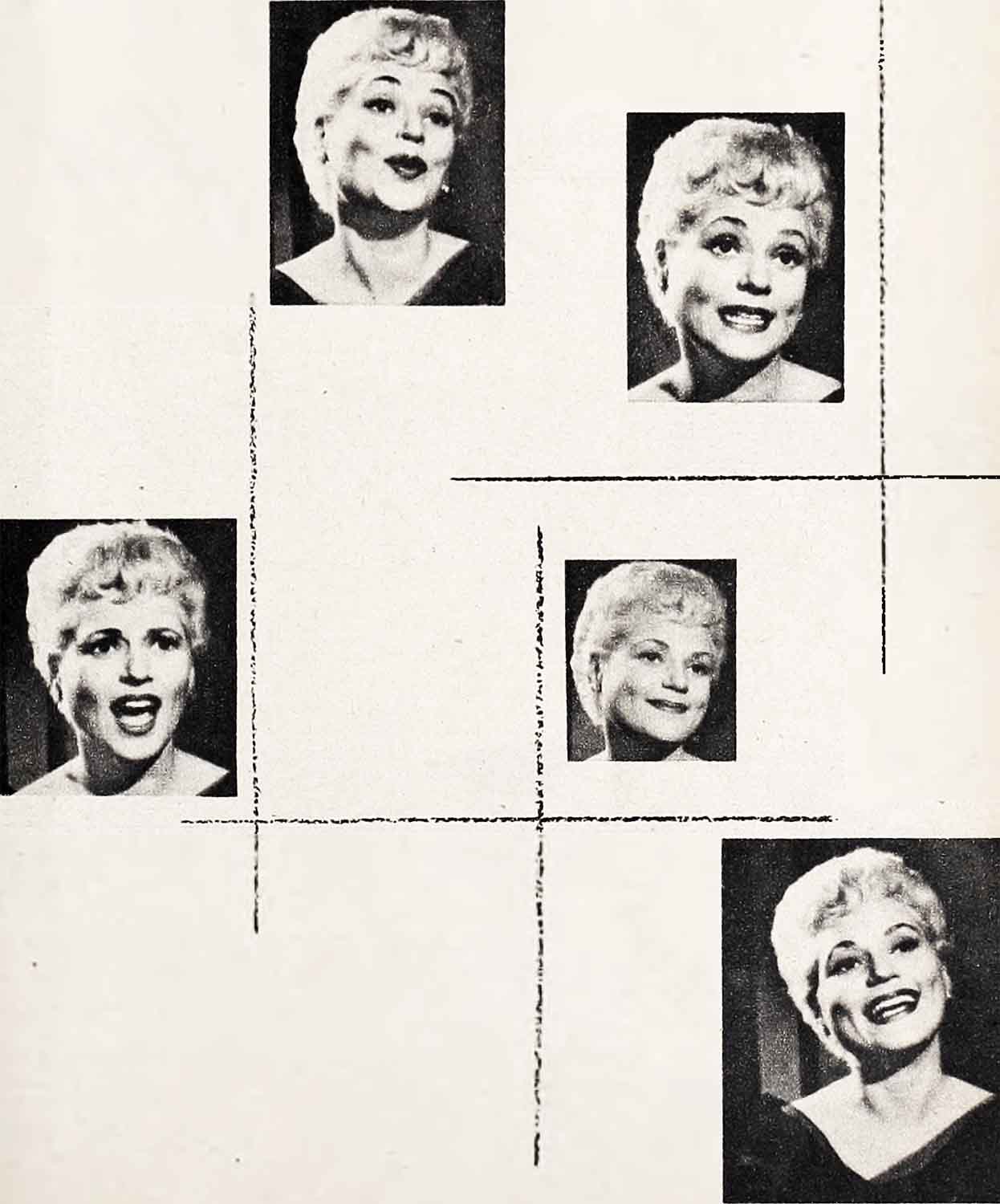
As the only child of Abraham and Helen Tuvim, her father was an educator and her mother a music teacher, she had been treated from the time she was born as a person and a welcome addition to her parents’ circle of intellectual, rather “arty” friends. Fortunately, neither of her parents insisted that she be a Personality.
“All I wanted was a child,” her mother says now, “I didn’t care what profession she took up or whether she was pretty or not. We loved her—that was enough.”
Habitues of Belmar, a New Jersey summer resort where the Tuvims spent their vacations, remember Judy as a child of five or six, mingling with the musicians, poets and painters who frequented the place, listening to sophisticated conversation with a wise expression, interrupting in her throaty voice when she felt like it, terrifying the more sedentary guests with her intensity.
By the time Judy was eleven and skipping school to travel through Europe with her mother, she was already—intellectually, at least—a grown-up, with serious aspirations as a writer.
When she was fourteen, Judy wanted to take a loft with one of her girl friends, fix it up with orange crates and odds and ends of decorating material, and use it for a workroom. Judy Was to write, and the other girl was to paint. Mrs. Tuvim started right out with Judy to look for the space, but the other child’s parents were so aghast they wouldn’t let the friend participate. The project turned out to be impossible because of lack of space as well as lack of money, and was dropped—but to Judy’s full satisfaction. She had learned firsthand why it couldn’t work.
When, at seventeen, she was graduated from Julia Richman High School in New York, she decided to forego college in favor of a job as switchboard operator at the Mercury Theater. She intended to write plays and felt she would learn her craft more quickly in the theater itself than in a classroom. On her first vacation from this apprentice job, at a summer camp in the mountains, she met Betty Comden and Adolph Green, both just as ambitious and intense as she.
For their own amusement as well as to divert other vacationers, the three—along with Alvin Hammer and John Frank—worked up a series of comic sketches which they performed every evening.
It didn’t occur to them then that their “act” had professional possibilities. Soon after they all had returned to New York, Judy went out on a Sunday night blind date, decided her escort was a dud, and left him on a corner in the village. It was very late, and it was raining heavily.
Judy turned into a doorway, to dry off, and heard music coming from below. Down she went, to find a tiny, smoky little night club, the Vanguard, where nearly all of the “guests” turned out to be performers trying out their own talents.
Judy sought out the owner of the place, Max Gordon. “Can anybody get in the act?” she asked him.
“Anybody good,” Gordon told her.
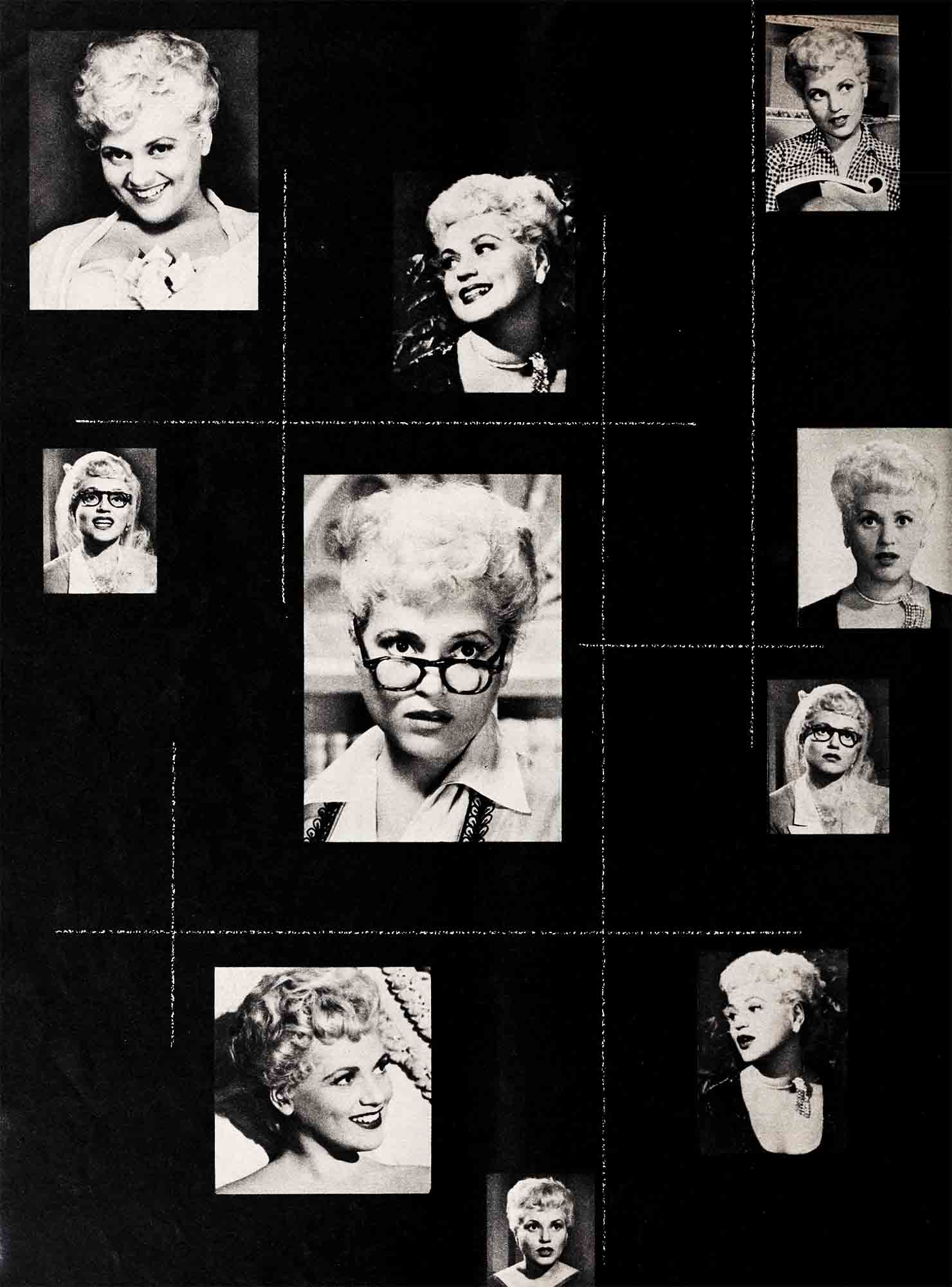
“Well, I have some friends . . . and we . . . well, I can’t explain just what we do but we’re good,” Judy assured him.
“Come on down, then,” said Gordon.
They appeared the following week and after a frighteningly bad start—Betty Comden went on alone to sing “The Stately Homes of England,” forgot the lyrics and burst into tears—completely captivated the sophisticated clientele of the Vanguard, and Gordon put them on as regulars at five dollars a performance.
Their very next booking was in the toniest night club in America—The Rainbow Room! Betty Comden—who wanted to play Shakespeare—Adolph Green—who wanted to be a serious actor—Judy Holliday—who wanted to be a playwright— were “The Revuers” now, whether they liked it or not, and all New York was talking about them.
But it was only a stopgap, they all agreed. “The only trouble was,” Betty Comden says now, “that it took us five years to stop gapping.”
They created some sketches that still are not forgotten, and Judy discovered that she was something of a song writer herself, when her music and lyrics for “The Girl with the Two Left Feet” became a quick sensation.
She even recorded the tune with Leonard Bernstein—then relatively unknown, now one of the nation’s leading composers and conductors—at the piano!
If it had occurred to him, Bernstein could have done Judy an even greater favor than playing her accompaniments. One of his best friends was a talented young clarinetist, David Oppenheim. David had seen Judy work, and was clamoring to meet her. Judy had heard David play, and was equally intrigued. But Bernstein never got around to introducing them. Cupid had to mark time in the wings for a few more years.
During “The Revuers” much publicized run in the Rainbow Room, acts imitating their zany routines sprang up all over the country. When their booking ended, all of their imitators were working, but “The Revuers” couldn’t get a job. The bid from the Trocadero—and Judy’s subsequent brief fling in pictures—came when they were down to their last dollar.
Triumph—flop—triumph—flop.
It was time for another triumph, Adolph Green finally convinced a reluctant Judy that afternoon when she was to brace Harold Clurman for a job in “Kiss Them for Me.”
Time it was, and Judy got the part, killed the people and won the Clarence Derwent award for best non-featured performance of the year. And then, when the play finally closed—and the up-again- down-again life was getting monotonous by this time—Judy couldn’t get a stage job anywhere.
In the meantime, she had to eat—and she welcomed the tiny checks for reading commercials on daytime radio serials.
Even as a housewife enchanted with the disappearance of dish-pan hands, Judy was a knock-out. Her friends say that every time Judy was on deck to sell soap, big-timers from all over Radio City would wander into the studio where she was working to see and hear her in action.
She obviously wasn’t going to sell soap forever, and Judy had a hunch that something big was about to happen.
She was broker than she had been since “The Revuers” sang for their supper and five dollars a night at the Vanguard, but she bought a mink coat!
“I just had to feel prosperous,” she explained, “and besides, I found a friendly little man who said he would sell me the coat on time.”
Dollar-down-dollar-a-week the coat may have been, but it turned out to be a great investment.
She was wearing it the day, soon after, when a message came through at CBS that Max Gordon, the famous Broadway producer, wanted to see her. His “Born Yesterday” was three days from its Broadway opening, and Jean Arthur, who had played Billie Dawn in the out-of-town tryouts, had withdrawn from the cast. Somebody who had seen Judy in “Kiss Them for Me” had told him she was the girl who could come to the rescue.
The producer first tried to reach Judy at her home. Mrs. Tuvim, under the impression that the Max Gordon calling was the Max Gordon of the Vanguard, poured out her heart. “Oh, Max, what am I going to do with Judy. I can’t get her to do anything. All she does is bang away at that play . . . and she eats too much, and she’ll get fat . . . and really. . . ”
That it was the Max Gordon looking for Judy seeped through ultimately and in some confusion Mrs Tuvim told him that her problem daughter could probably be reached at the broadcasting studio.
After this it was probably with some qualms that Mr. Gordon waited in his office for Miss Holliday to arrive.
She came in in a cloud of mink and self-confidence, and said of course she could learn the part in three days.
However, she was not interested primarily in acting. She was a writer. Perhaps he would like to read her play.
Perhaps, later, Gordon broke in, but right now there was the question of the imminent opening of “Born Yesterday.”
Oh, that, Judy said. Well, of course, if he insisted, but the salary he had mentioned was not adequate at all.
What happened is theatrical history. Judy took over the part—at her terms, and proceeded to take over Broadway.
“Born Yesterday” was a smash hit and when Judy agreed finally to return to Hollywood she was in a position to choose her parts and name her figure.
Early in the run of “Born Yesterday,” Judy finally met David Oppenheim. They were quietly married in January, 1948, and set up housekeeping in the apartment in the village. It is furnished charmingly with fine, mellow antiques which Judy refinished herself. The kitchen is a gourmet’s paradise full of copper pans and mixing bowls where Judy loves to cook and—her appetite is legendary—to eat.
David’s very good job as an executive with Columbia Records keeps him fairly constantly in New York, and, although Judy is committed for one picture a year at Columbia and is constantly submerged in offers from other studios, Hollywood continues to be just “a nice place to visit” in Judy’s eyes.
Now Judy’s pals won’t have to hold her hand any more and tell her that an up always follows a down. For Judy, from now on in, is strictly the girl on the top.
THE END
It is a quote. PHOTOPLAY MAGAZINE MAY 1951


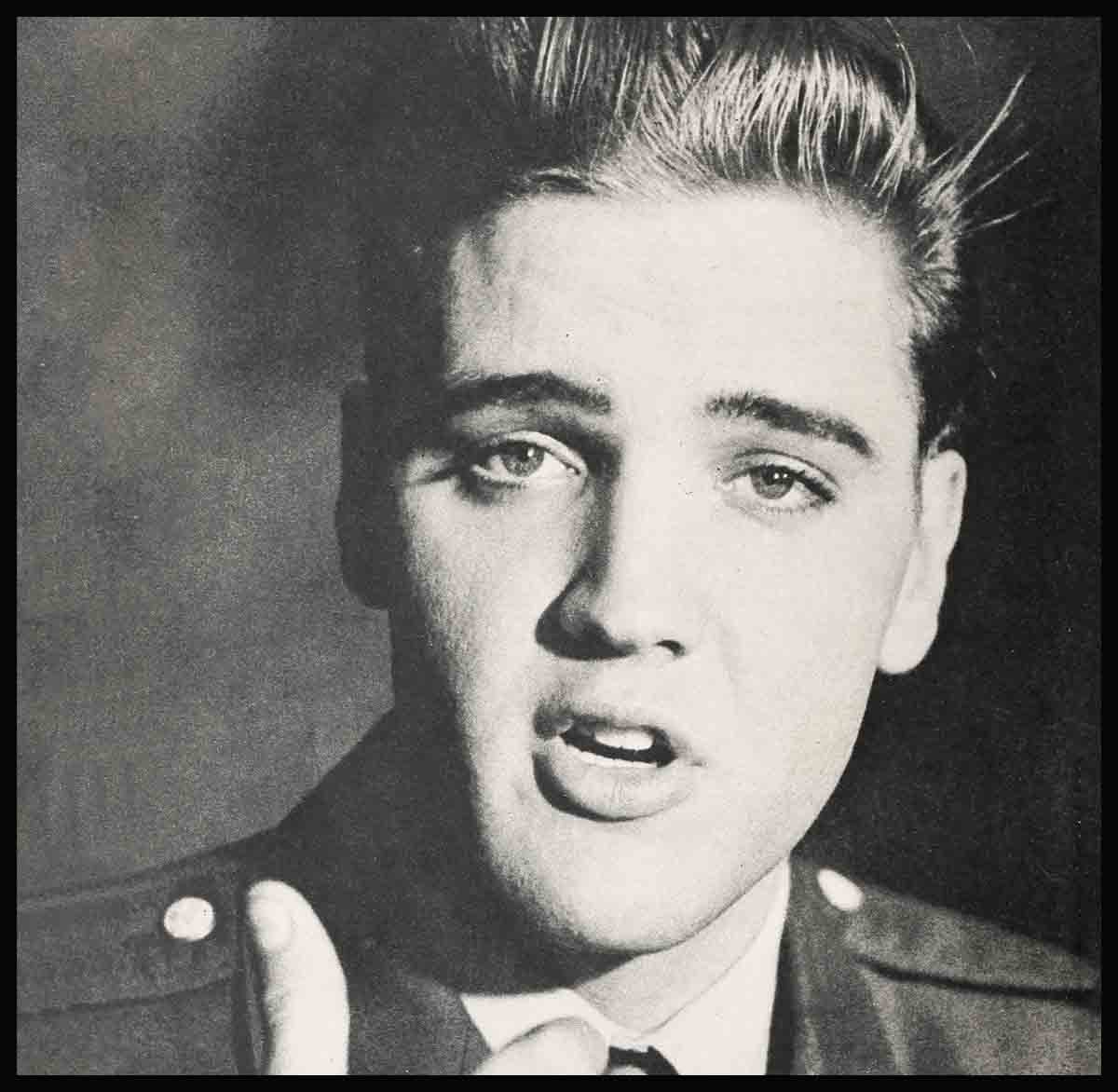

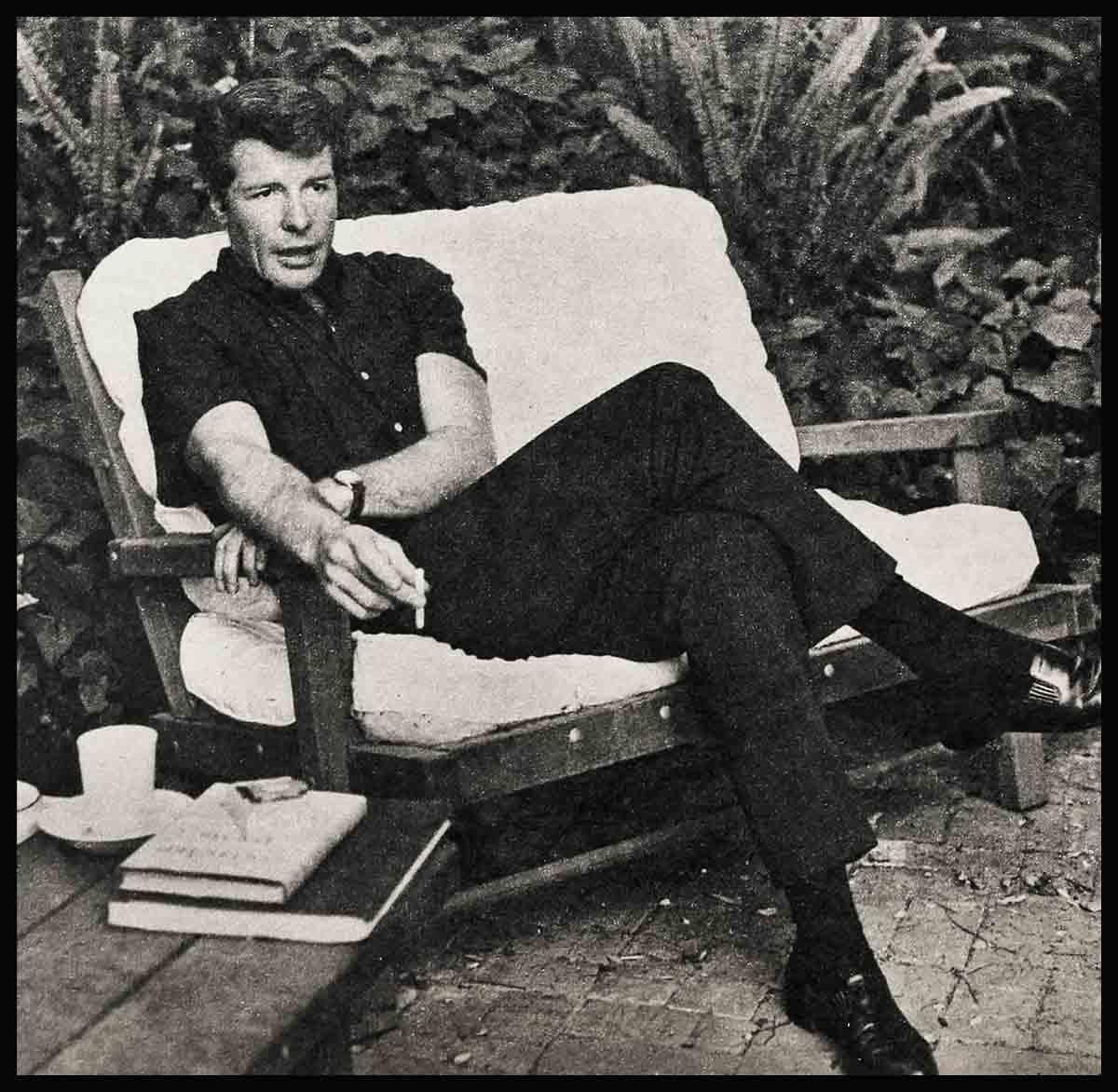
vorbelutrioperbir
4 Temmuz 2023I’m truly enjoying the design and layout of your blog. It’s a very easy on the eyes which makes it much more pleasant for me to come here and visit more often. Did you hire out a developer to create your theme? Outstanding work!